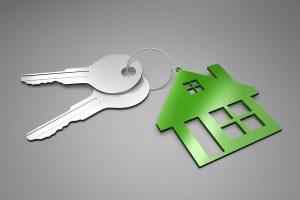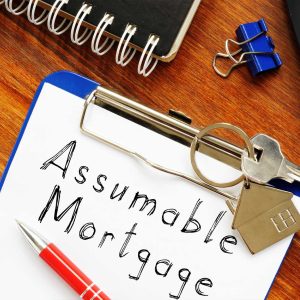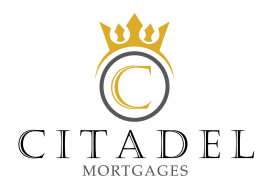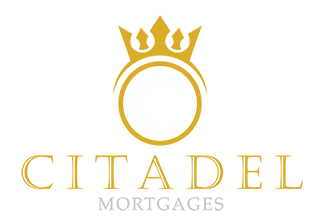When it comes to buying a second home in Canada, many homeowners wonder if they can leverage their existing home equity to finance the purchase. Home Equity Loans in Canada are indeed a viable option for those looking to invest in additional properties.
Canadian homeowners are increasingly recognizing the potential of Home Equity Loans in Canada as a means to realize their property investment dreams. Leveraging your existing home equity can open up exciting opportunities in the real estate market. Whether you’re eyeing a cottage by the lake, a condo in the city, or a vacation property, your home equity can be a valuable financial resource.
In this comprehensive guide, we will explore the different ways you can use your home equity to buy another home in Canada, the benefits of doing so, and the step-by-step process to make it happen.
Table of Contents
- Understanding Home Equity Loans
- Home Equity Lines of Credit (HELOCs)
- Using a Personal Loan to Buy Another House
- Calculating Your Home Equity
- Appraising Your Home
- Applying to Access Your Home’s Equity
- Accessing the Funds
- Making Payments
- Benefits of Using Home Equity to Buy Another Home
- FAQs on Using Home Equity to Buy Another Home in Canada
1. Understanding Home Equity Loans
One of the most common ways to use your home equity to buy another home is through home equity loans, also known as second mortgages. These loans allow you to borrow a percentage of your home’s appraised value, minus the remaining balance on your first mortgage. With a home equity loan, you receive a lump sum of money that you can use towards the purchase of a second property. The loan is secured by your home, which means that if you fail to repay it, the lender has the right to seize your property.
2. Home Equity Lines of Credit (HELOCs)
Another option to consider is a home equity line of credit (HELOC). Similar to a credit card, a HELOC provides you with a revolving line of credit that you can draw from as needed. With a HELOC, you can access a percentage of your home’s appraised value and use it towards the purchase of another home. The advantage of a HELOC is that you only pay interest on the amount you withdraw, giving you flexibility and control over your borrowing.
3. Using a Personal Loan to Buy Another House
While home equity loans and HELOCs are specifically designed for leveraging your home equity, you may also consider using a personal loan to buy another house. Personal loans are unsecured loans, meaning they don’t require collateral. However, they typically carry higher interest rates compared to home equity loans. If you have a strong credit history and income, a personal loan could be a viable option to finance the purchase of a second home.
4. Calculating Your Home Equity
Before diving into the process of using your home equity to buy another home, it’s important to calculate how much equity you have available. To do this, you’ll need to determine the current market value of your home and subtract the remaining balance on your mortgage. The resulting amount is your home equity. Keep in mind that lenders typically allow you to borrow up to a certain percentage of your home’s appraised value, usually up to 80%.
5. Appraising Your Home
To accurately calculate your home equity, you’ll need to have your property appraised by a professional appraiser. An appraisal determines the current market value of your home based on factors such as location, size, condition, and recent sales of comparable properties in your area. It’s important to note that the cost of an appraisal is typically the responsibility of the borrower.
6. Applying to Access Your Home’s Equity
Once you have a clear understanding of your home equity, you can begin the application process to access the funds. This involves submitting an application to your chosen lender, providing documentation such as proof of income, employment history, and property details. The lender will review your application, assess your eligibility, and determine the amount of equity you can borrow.
7. Accessing the Funds
Once your application is approved, you can access the funds from your home equity loan or HELOC. The lender will provide you with the agreed-upon loan amount, which can be used towards the purchase of another home. It’s important to use the funds responsibly and within your means to avoid financial strain in the future.
8. Making Payments
After accessing the funds, you will need to make regular payments towards your home equity loan or HELOC. These payments typically include both principal and interest, and the repayment terms will be outlined in your loan agreement. It’s crucial to make timely payments to avoid any penalties or potential consequences, such as foreclosure.
9. Benefits of Using Home Equity to Buy Another Home
Using your home equity to buy another home in Canada can offer several benefits. Home Equity Loans in Canada are a valuable tool in this process. Firstly, it allows you to leverage the value of your existing property to secure financing for a second home. This can be especially useful if you don’t have enough cash for a down payment. Additionally, the interest rates on home equity loans and HELOCs are often lower compared to other types of loans, making them a cost-effective option for borrowing.
Furthermore, investing in another property can provide you with additional income through rental payments or potential property appreciation. Real estate has historically been a sound investment, and owning multiple properties can diversify your portfolio and provide long-term financial stability. If you’re considering this strategy, Home Equity Loans in Canada can help make it a reality, providing the financial flexibility you need to expand your real estate holdings and secure your financial future.
10. FAQs
Q1: Can I use a home equity loan or HELOC to buy an investment property?
Yes, you can use your home equity to buy an investment property. However, keep in mind that the maximum amount you can borrow may be lower than if you were buying a primary residence.
Q2: What are the risks of using home equity to buy another home?
One of the main risks is the potential depreciation of the real estate market. If property values decrease, you may end up owing more than your properties are worth. Additionally, if you’re unable to make the loan payments, you could face foreclosure.
Q3: Can I use a home equity loan or HELOC to buy a vacation home?
Yes, you can use your home equity to buy a vacation home. However, lenders may have specific requirements and restrictions for financing vacation properties.
Q4: How long does it take to access the funds from a home equity loan or HELOC?
The timeline for accessing funds can vary depending on the lender and the complexity of your application. It’s best to consult with your chosen lender to get a more accurate estimate.
Q5: Can I use the funds from my home equity loan or HELOC for renovations on the second home?
Yes, you can use the funds from your home equity loan or HELOC for renovations on the second home. However, it’s important to clarify this with your lender and ensure that your loan agreement allows for this use of funds.
Conclusion
Using equity loans to buy another home in Canada can be a smart financial move for homeowners looking to expand their real estate portfolio or invest in additional properties. By understanding the different options available and following the step-by-step process outlined in this guide, you can leverage your home equity to make your second home purchase a reality. Remember to carefully consider your financial situation and consult with a mortgage broker in Canada, such as Citadel Mortgages, to ensure that this strategy aligns with your long-term goals. Take the first step toward your second home with Citadel Mortgages today!

Unexpected costs when buying a home in Canada
When buying a home in Canada, there are several unexpected costs that buyers should be aware of to avoid financial surprises. Some of the key

Considering An Early Mortgage Renewal
Why consider renewing your mortgage ahead of time? Well, one big reason is changes in interest rates. If rates drop, jumping on an early renewal

How to get a HELOC on an Investment Property in Canada
To get a Home Equity Line of Credit (HELOC) on an investment property, you need to follow these steps: 1. Know Your Finances: Estimate the

Expert Advice: Buying a House in Cash in Canada
In exploring the possibility of buying a house in cash in Canada, it’s essential to understand the various aspects that come into play. Here’s a

Average Down Payment for a House in Canada
According to the Canadian Real Estate Association, the average house price in Canada hit around $637,673 in August 2022. This means if you’re looking to

Assumable Mortgages: An In-Depth Look
Assumable mortgages are a unique financing alternative that could potentially save you thousands of dollars and simplify the home-buying process. But what exactly are they





